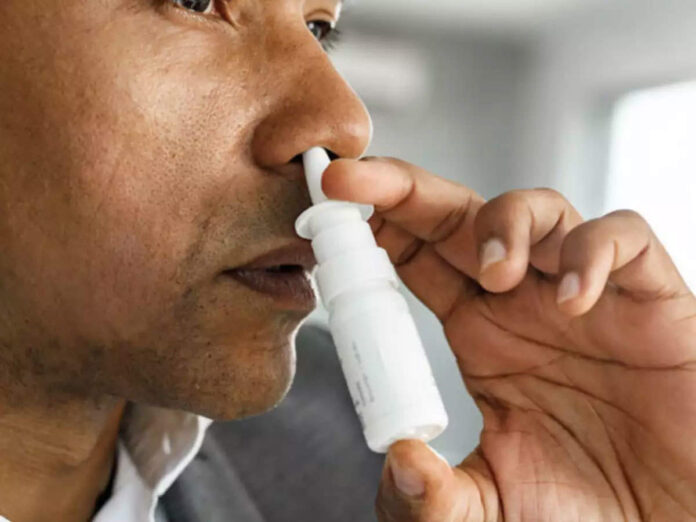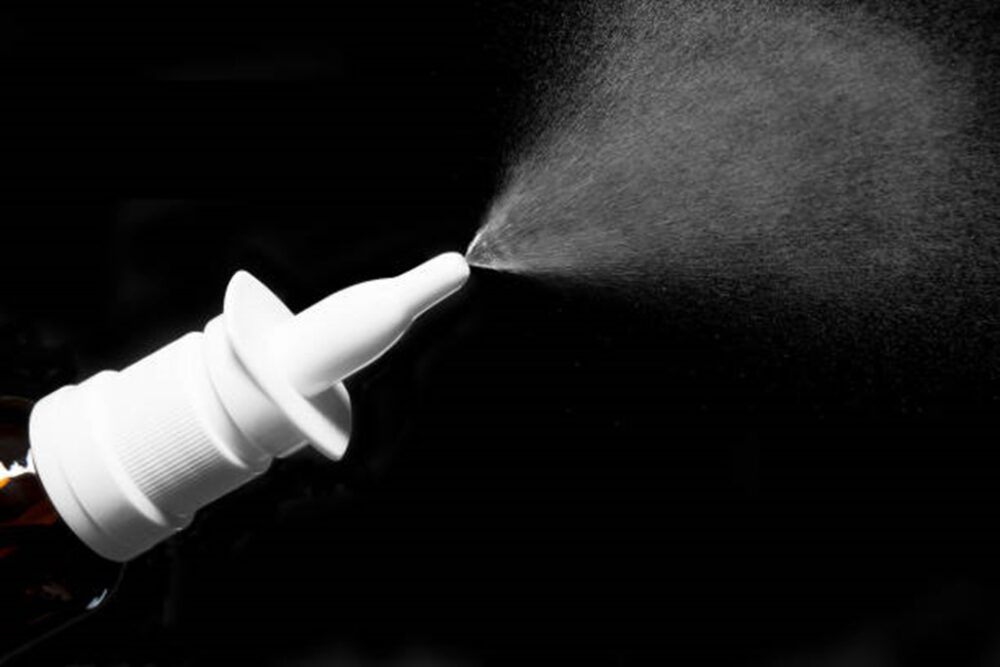
Nasal sprays have become increasingly popular over the years, and with good reason. Not only can they help to alleviate congestion and other symptoms of colds or allergies, but they can also be used to treat viral infections. Antiviral nasal sprays are specifically designed to combat viral infections in the nose and sinuses.
Antiviral nasal spray in Hong Kong works by using a combination of active ingredients that target specific viruses that cause nasal infections. These active ingredients often include antiviral medications such as acyclovir, which helps reduce inflammation caused by a virus. Other active ingredients may include decongestants or steroid medications, which help reduce inflammation and open up airways for easier breathing.
When it comes to treating viral infections in the nose and sinuses, the antiviral nasal spray is one of the most effective treatments available. It is more successful than oral medications at reducing symptoms associated with colds or flu-like illnesses, as well as reducing inflammation caused by viruses like rhinovirus (the common cold) or influenza virus (the flu).
Benefits of Using an Antiviral Nasal Spray

Antiviral nasal sprays are a great way to fight off colds and the flu. This type of spray works by containing active ingredients that can help reduce the severity of symptoms associated with these illnesses. The primary benefit is that it can provide relief from nasal congestion, runny nose, sore throat, and other related symptoms.
In addition to providing relief from cold-related symptoms, antiviral nasal sprays can also be used to prevent the spread of viruses in a household or workspace. By spraying before contact with others or shared objects, you can help reduce your risk of contracting an illness from someone else. This is especially important for those who work in schools or healthcare facilities where exposure to germs is likely higher than average.
Antiviral nasal sprays are generally safe for use and contain no serious side effects when used as directed by a doctor or pharmacist. However, it’s important to note that pregnant women should talk to their doctor before using any medication, including an antiviral nasal spray. Additionally, some adults may experience mild stinging sensations after using this type of spray if they have sensitive skin around their nostrils and eyes.
How to Use an Antiviral Nasal Spray
Using an antiviral nasal spray is a great way to help protect yourself from viruses and other airborne illnesses. Antiviral nasal sprays are available over-the-counter, but you should always consult your doctor before using one, as there may be potential side effects or interactions with medications that you are taking. Here is a step-by-step guide on how to use an antiviral nasal spray:
- Read the instructions carefully and make sure you understand them before proceeding. This will ensure that you are using the product correctly and safely.
- Clean your hands with soap and water before handling the bottle of spray, so that any germs on your hands don’t contaminate them.
- Shake the bottle well before each use to mix the contents properly for optimal effectiveness of the medication contained within it.
- Remove any cap or protective covering from the nozzle of the bottle and hold it upright while spraying into one nostril at a time until instructed otherwise by your doctor or pharmacist (usually up to two sprays per nostril).
- After both nostrils have been sprayed, gently blow your nose to clear out any excess medication that may have been left behind after spraying.
Potential Side Effects of Using an Antiviral Nasal Spray

Using an antiviral nasal spray is a popular way to battle colds, the flu, and other illnesses. However, like any medication, there are potential side effects that users should be aware of before they use it.
The most common side effect of using an antiviral nasal spray is a burning or stinging sensation in the nose. This is usually mild and will go away after a few minutes of use. Some people may also experience sneezing or throat irritation when using the spray. These side effects are usually temporary and can be managed with over-the-counter medications such as ibuprofen or acetaminophen.
More serious side effects associated with using antiviral nasal sprays include headaches, dizziness, nausea, and vomiting. If you experience any of these symptoms while using your spray it’s important to seek medical attention immediately as they could indicate an underlying medical condition that needs treatment right away.
Common Ingredients Found in Antiviral Nasal Sprays
Antiviral nasal sprays are a type of medication used to treat cold and flu-like symptoms, including congestion, sore throat, and runny nose. They are typically made with active ingredients that help reduce the spread of viruses in the nasal passages and airways. Common ingredients found in antiviral nasal sprays include:
- Saline: Saline is a common active ingredient used to thin mucus and reduce inflammation in the nasal passages. This helps relieve congestion and other cold symptoms caused by a virus.
- Menthol: Menthol is an organic compound derived from peppermint oil that can be found in many antiviral nasal sprays. It helps soothe sore throats, clear sinuses, and make breathing easier when dealing with a cold or flu virus.
- Eucalyptus Oil: Eucalyptus oil is derived from eucalyptus leaves and has been used for centuries as an herbal remedy for respiratory ailments like the common cold or flu virus. It has anti-inflammatory properties that can help reduce congestion while also providing relief from headaches caused by sinus pressure due to allergies or viruses alike.

Conclusion
Overall, the use of the best antiviral nasal spray can be beneficial in many ways to help reduce symptoms caused by viral infections. The best antiviral nasal sprays are made up of natural ingredients that have proven to be effective against certain viruses. They are also easy to use and have been found to provide relief from congestion, runny nose, and other symptoms associated with viral infections.
Not only do they provide relief but they also reduce the risk of spreading viruses by providing a protective barrier between your nose and mouth. Therefore, using the best antiviral nasal spray is an effective way of combating the symptoms caused by viral infections while reducing the risk of spreading them to others.








